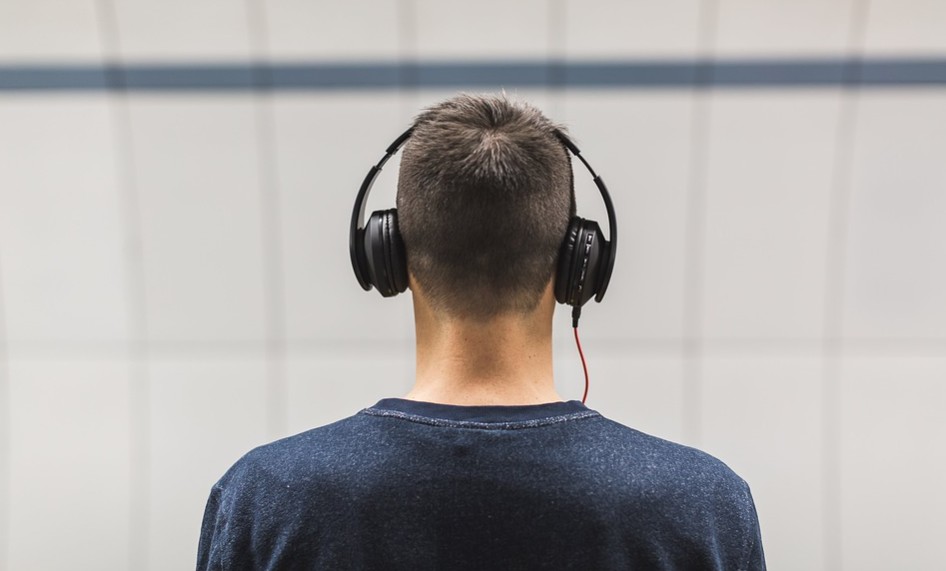The long-running pandemic has forced everyone to tap their inner selves in search of a new revelation. Ever since it happened, people started trying new things in life, practicing new rituals, and learning new skills.
One of the most peaceful and productive ways to spend our extra time is to learn a new musical instrument. But this is where the biggest misconception comes in, according to which learning a new instrument is almost impossible.
To be fair, it might be a time-taking and not-so-simple skill to develop, but with the right tips and advice, mastering a musical instrument won’t be an impossible task anymore.
5 Tips to Learn a Musical Instrument
- Begin with Baby Steps
Starting to learn a new instrument can often seem quite frustrating and discouraging as you cannot master it in a short period. It requires loads of patience and practice. But once you gain a complete grip over the instrument, you won’t remember your beginning bumps.
People who want to learn new instruments can often be overwhelmed by the new lessons and training. This usually happens because they burden themselves with much more than they can handle. Here, you need to remember that you are a beginner and not a master. It’s okay to not excel in the beginning, or fail the first few attempts, or be a slow learner.
One thing to always keep in mind is that slow is not bad. The point is that you should keep moving forward and be consistent, even if it is at a much slower speed. This way, you can learn the instrument and enjoy the process at the same time.
Many beginners try to push themselves way too hard to get better, but that never helps. All it does is make you miserable and annoyed. This forceful method of learning can lead to a lot of negativity in your personality, music, and life, as well as destruct your ability as a musician.
Patience is what you’ll need in abundance to get through your learning phase. Remember that music is supposed to be fun, relaxing, and comforting, which you can ruin by forcing your way into it. So, keep it slow and productive, and you’ll do better.
- Practice Makes You Perfect
In today’s world, time has become scarce as everybody around us keeps getting busier and busier in their life. People perform multiple tasks and activities in a single day, leaving no extra time for anything fun. But if you are planning to learn a musical instrument, remember that it requires your time and attention daily.
Multitaskers often find it hard to juggle between different activities, whether it’s work, studies, or extracurricular activities. But you can prepare a daily schedule to solve this problem. Doing this can help you practice your instrument regularly, which might get you closer to mastering it.
Initially, you should set a daily practice schedule to discipline yourself, but once it becomes a part of your daily routine, you can focus more on the practice and progress.
Wondering what the ideal duration of the practice sessions is? This is one common question that comes quite often from a beginner, but there’s no single answer to this question. It all depends on your daily schedule and your ability to manage the practice sessions along with every other activity.
Don’t make your practice sessions too long and extensive. A session of 30 to 45 minutes would usually be adequate for you. For those of you who find it hard to manage a 30-minute session, you can divide it into parts of 10 to 15 minutes. But one thing that you should ensure while practicing is to avoid any distractions and disturbances and put all your focus on the training.
- Take Time to Listen
You can play the instrument all you want, but if you don’t listen to suitable music, it will be difficult for you to understand the music and your instrument in depth. It is important to listen to the right artists or the right tunes because they can teach you a lot about the use of your instrument. Always listen to the classics as they can help you learn about the changes that happened through time.
Another amazing piece of advice to make your learning process more productive is to record yourself while practicing. It’s hard to concentrate or identify your mistakes while you are playing the instrument, but when you hear it later, it can give you a better understanding of your performance.
You can write down all the points you notice in your recorded performance, whether they are good or bad, and work on them in your next practice session. This will also make you look forward to your practices more enthusiastically, allowing you to work on your issues better.
Listening is all about patience, and you will be needing a lot of that to make your skills more powerful. These tips will assist you in your learning process and make your practices much easier and interesting.
- A Good Tutor and Studying Always Help
Once you pick the right instrument for yourself, it is really important to know all about it. You can gain all that knowledge by studying the theory of that particular instrument. It will provide you a wider perspective of your musical instrument and music in general.
The studying will also introduce you to several useful and essential concepts that will teach you everything you need to know before you start playing and practicing. The basic education about your instrument will guide you throughout the practices and even afterward. When you have the basic sense of musical notes, chords, and scales, it will get much easier for you to learn the new instrument or shift from one instrument to another.
Once you are familiar with notes, scales, and chords, it will become simple to put them into a melody or harmony. Even though learning a new instrument is always difficult and requires a lot of time, with the help of some basic education and studying, you can excel in playing the instrument with precision and ease.
With the help of the internet, self-education has become quite a popular choice these days. People have been exploring the vast world of the internet to learn new skills and talents. Even though we believe that the internet is an abundant source of knowledge that can offer you a great learning experience, proper training under a professional can help take your music journey to incredible lengths.
Having a brilliant tutor who can answer each and every question of yours and practically teach you to play the instrument will help you in several ways. However, this does not mean that you leave everything to your tutor because it’s still your job to learn and understand, and nothing can be achieved without your efforts, no matter how great the tutor is.
- Find a Group and an Audience
If you want to make your learning experience better, being a part of a band always helps. Having other people going through the same learning process as you will always help you learn better and faster. This will boost your competitive side and teach you to be a team player, which is significant if you are a part of a band.
It may be a terrifying thought to enter a band while you are still learning and not fully prepared, but this is the right option and can be a really amusing experience if you find the right bunch of people. Getting together with the group once or twice a week to perform as a band will enable you to polish your skills and check and compare your progress with others in the group.
Another most important part of your training is to have the confidence to perform in front of an audience. The first few experiences might be a little unpleasant or unsatisfactory, but that is all a part of the process. Performing in front of an audience will allow you to apply all the things you learned during your training and practice sessions.
Many people do not pay much attention to this tip, and that’s where they mess up because performing for a crowd will lead to constant pressure and make you fight your nerves, thus revealing how much you have truly learned from your sessions.
One would usually start by performing in front of their family, friends, or people who support and encourage them even if they mess up a few things. It is also preferred to fill your audience with a few people who have a good sense of music. The feedback from a general audience can really help you work on your skills and techniques. Spending more time performing for other people will make you feel more confident and comfortable playing the instrument.
Conclusion
Mastering a musical instrument might feel like an impossible task, but you can’t be more wrong about it. It is undoubtedly a difficult one and might demand some serious attention, efforts, and time of yours. We hope that these basic and beneficial tips to learn a musical instrument will help make your music journey much more convenient.





